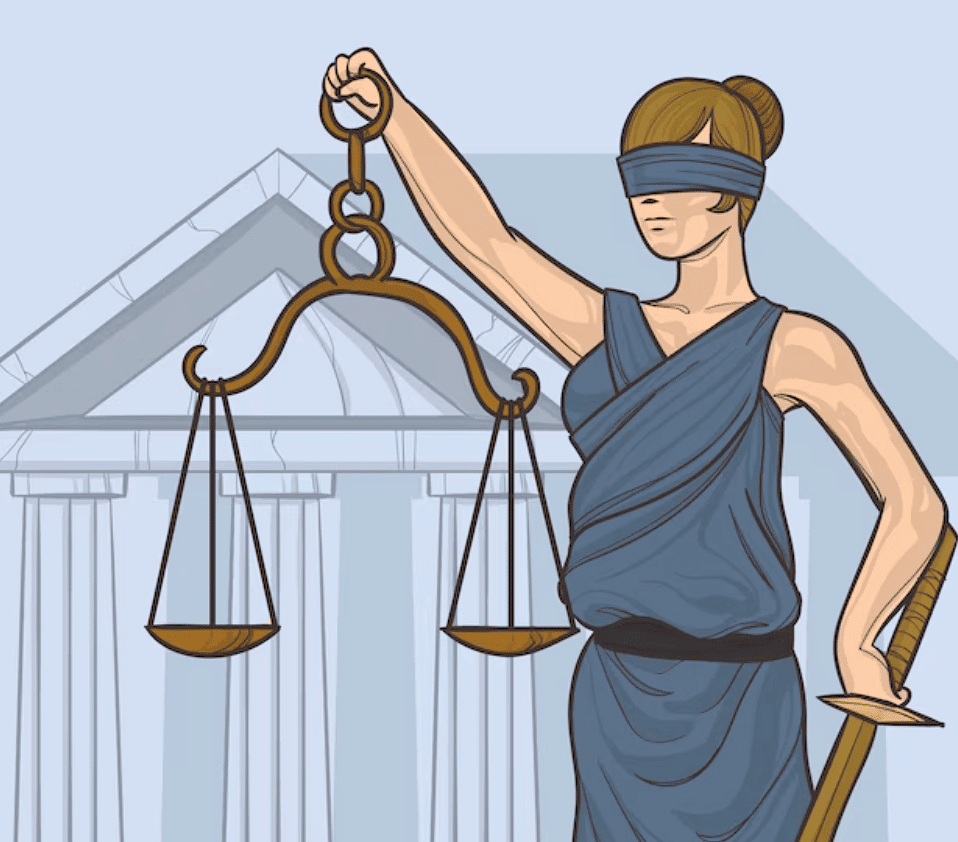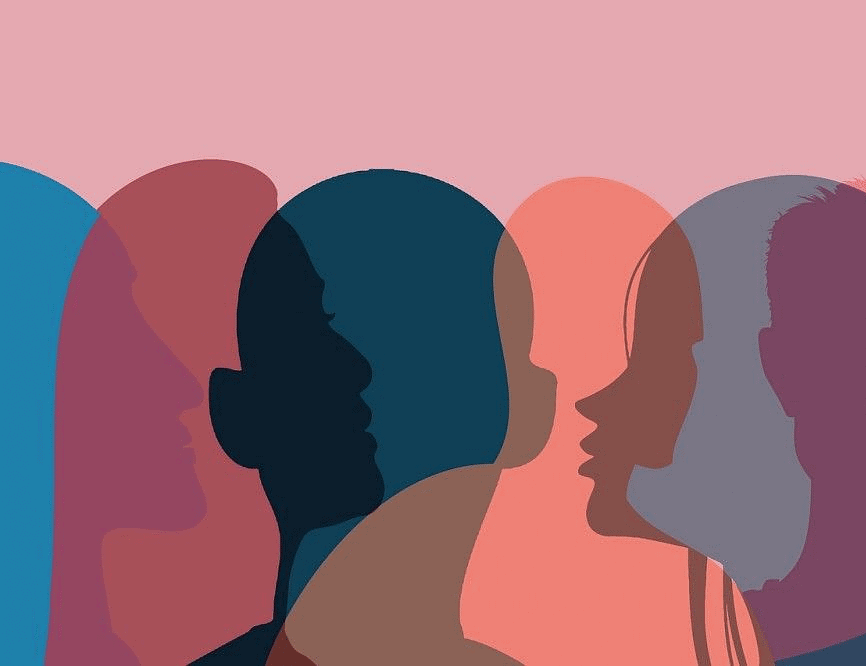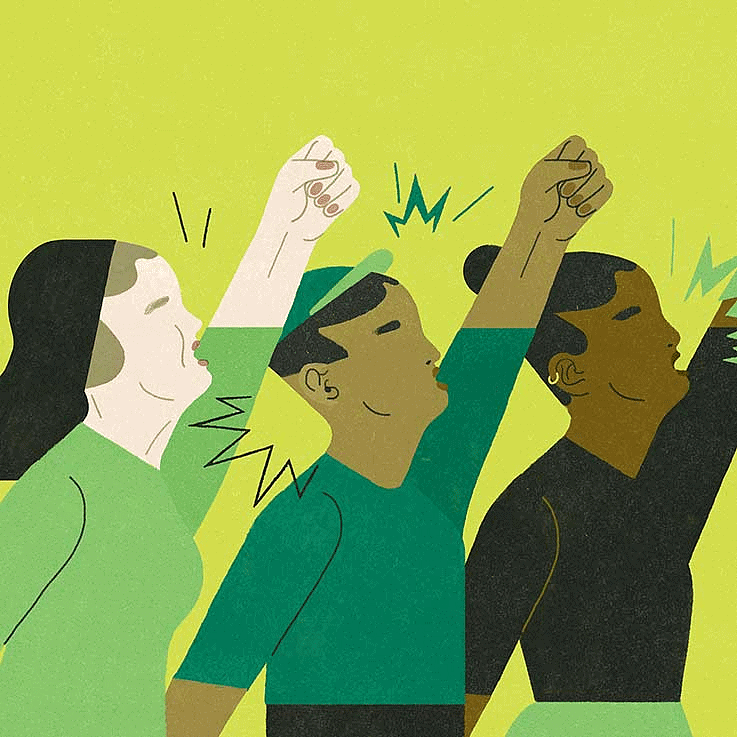Humanities/Arts Exam > Humanities/Arts Notes > Political Science Class 11 > Chapter Notes: Social Justice
Social Justice Class 11 Political Science
| Table of contents |

|
| How do We Define 'Justice'? |

|
| What is Justice? |

|
| Just Distribution |

|
| John Rawls: Theory of Justice |

|
| Pursuing Social Justice |

|
How do We Define 'Justice'?
Justice, like love, is intuitively understood yet hard to define, inspiring passion and universal desire. It shapes society’s public life and resource distribution, making it central to politics.

What is Justice?
- All cultures explore justice, with varied interpretations, like dharma in ancient India for a just social order.
- Confucius in China said kings maintain justice by punishing wrongdoers and rewarding the virtuous.
- Plato’s The Republic debates justice, with Socrates’ friends questioning why to be just if unjust people seem successful.
- Socrates explains that universal injustice, like rule-breaking or lying, harms everyone by causing insecurity.
- Justice involves everyone’s well-being, not just helping friends or personal gain, similar to a doctor caring for patients.
- A just ruler ensures each person gets their due, promoting fairness.
- Today, justice means respecting human dignity, as per Immanuel Kant, ensuring equal opportunities for all to pursue goals.
Question for Chapter Notes: Social JusticeTry yourself:What does social justice entail?
View Solution
Equal Treatment for Equals
- All people deserve equal importance, but deciding their due is complex.
- Treating equals equally means giving everyone the same rights as humans.
- Rights include civil (life, liberty), political (voting), and social (equal opportunities).
- No discrimination should occur based on class, caste, race, or gender.
- People should be judged by work, not group identity, like the same pay for the same jobs.
- Unequal pay for the same work due to caste or gender is unjust.
Proportionate Justice
- Equal treatment isn’t the only justice principle; sometimes it can seem unfair.
- For example, giving all students the same exam marks ignores their effort or the quality of their work.
- Justice can mean rewarding people based on effort, skills, or dangers in their work.
- Everyone should start with equal rights, but rewards should match the work’s demands.
- Miners, craftsmen, or police may not always get fair pay compared to others.
- Justice balances equal treatment with proportionality for fair rewards.

Recognition of Special Needs
- Social justice includes considering special needs when distributing rewards or duties.
- Equal treatment and proportionate rewards alone may not ensure a fair society.
- People with disabilities or a lack of education may need extra help to be equal.
- Factors like physical disabilities, age, or poor healthcare justify special treatment.
- Equal treatment despite unequal access to basic needs can create an unfair society.
- In India, caste-based discrimination led to job and education quotas for the Scheduled Castes and Tribes.
- Governments must balance equal treatment, proportionate rewards, and special needs for justice.
Just Distribution
- Social justice requires fair laws and the just distribution of goods and services in society.
- Serious economic or social inequalities need redistribution of resources for fairness.
- Equal opportunities and basic living conditions help people pursue their goals.
- In India, the Constitution banned untouchability to ensure access to temples, jobs, and necessities like water.
- State governments use land reforms to fairly redistribute resources like land.
- Debates over resource distribution, like job or education quotas, can cause strong emotions or violence.
- John Rawls argues that helping the least privileged is rationally justified for a just society.
Question for Chapter Notes: Social JusticeTry yourself:What is the responsibility of a democratic government towards its citizens?
View Solution
John Rawls: Theory of Justice
- John Rawls’ Theory of Justice proposes a method to achieve fair and just societal rules by imagining decision-making under a veil of ignorance.
- The veil of ignorance requires individuals to make decisions about society’s organisation without knowing their own future position, status, or circumstances (e.g., family, caste, wealth).
- Under this veil, people are expected to act rationally in their self-interest, but ignorance of their specific role leads them to consider the perspective of the worst-off in society.
- Rational individuals will support rules ensuring fair opportunities for all, especially for disadvantaged groups, as they might end up in such a position.
- Key resources like education, health, and shelter should be accessible to everyone, not just the privileged, to ensure fairness.
- The theory does not rely on self-sacrifice or heroism but on rational thinking, making it practical given human tendencies to prioritise personal interests.
- Policies under the veil of ignorance aim to benefit society as a whole, balancing protections for the worst-off with benefits for all, as individuals could occupy any social position.
- Rawls emphasises rational action over morality, allowing individuals to freely determine what is best for themselves while ensuring impartiality and fairness in distributing societal benefits and burdens.
- The outcome is a system of fair laws and policies that promote justice without requiring prior moral norms or extraordinary generosity.
Question for Chapter Notes: Social JusticeTry yourself:What is the 'veil of ignorance' theory put forward by John Rawls?
View Solution
Pursuing Social Justice
- In a society where there are significant and lasting divisions between those who possess greater wealth, property, and power and those who are excluded and deprived, social justice is deemed to be absent.
- Social justice does not necessitate absolute equality in the way people live.
- Various methods for determining people’s necessities have been developed by different governments and international organisations such as the World Health Organisation.
- Providing people with their fundamental requirements is regarded as one of the responsibilities of a democratic government.
- However, fulfilling such basic living standards for all citizens may impose a significant burden on governments, particularly in countries such as India that have a large population of impoverished people.
- In India, various political groups endorse different approaches and debate the relative merits of different schemes to assist marginalised sections of the population, such as the rural or urban poor.
- When serious economic or social inequalities exist, it may be necessary to redistribute some important resources to help create a fairer environment for everyone.
- The Constitution abolished untouchability to encourage social equality, ensuring that individuals from 'lower castes' have access to temples, jobs, and fundamental rights.
- Even if there is agreement on the need for states to assist the most disadvantaged to achieve some level of equality, there can still be disagreements about the best ways to do so.
Question for Chapter Notes: Social JusticeTry yourself:What is politics about in a democratic society?
View Solution

Free Markets versus State Intervention
- Free market supporters believe individuals should freely own property, set prices, and compete for benefits.
- They argue free markets lead to a just distribution, rewarding merit and talent fairly.
- Some accept limited state intervention to ensure a basic minimum standard of living for equal competition.
- Private agencies could provide services like health or education, with the state empowering people to afford them.
- However, private agencies may avoid unprofitable areas, like rural schools, or offer low-quality services.
- Free markets often favour the wealthy, limiting opportunities for the disadvantaged.
- State intervention is needed to ensure basic facilities like education and health are available to all.
- In India, debates on free markets versus redistribution reflect the challenge of reducing social and economic inequalities.
The document Social Justice Class 11 Political Science is a part of the Humanities/Arts Course Political Science Class 11.
All you need of Humanities/Arts at this link: Humanities/Arts
|
43 videos|268 docs|39 tests
|
FAQs on Social Justice Class 11 Political Science
| 1. What is the definition of justice in the context of social distribution? |  |
Ans.Justice in the context of social distribution refers to the fair allocation of resources, opportunities, and privileges among individuals in a society. It emphasizes the importance of equitable treatment and ensuring that everyone has access to what they need to thrive, while also recognizing the differences in circumstances and needs among individuals.
| 2. What are the key principles of John Rawls' theory of justice? |  |
Ans.John Rawls' theory of justice is based on two key principles: the principle of equal basic liberties, which asserts that each person should have the same extensive set of liberties compatible with a similar set for others, and the difference principle, which states that social and economic inequalities should be arranged to benefit the least advantaged members of society.
| 3. How does pursuing social justice differ from individual justice? |  |
Ans.Pursuing social justice focuses on systemic inequalities and the collective well-being of groups within society, whereas individual justice typically concerns personal rights and fair treatment of individuals in specific situations. Social justice aims to address broader societal issues, such as poverty, discrimination, and access to resources, while individual justice may deal with legal rights and personal grievances.
| 4. What role do societal structures play in achieving justice? |  |
Ans.Societal structures play a crucial role in achieving justice as they can either promote or hinder equitable distribution and access to resources. These structures include laws, institutions, and cultural norms that shape the opportunities available to individuals. Effective reforms and policies are needed to dismantle systemic barriers and create an environment conducive to justice for all.
| 5. Why is social justice important for a functioning society? |  |
Ans.Social justice is important for a functioning society because it fosters equality, reduces conflict, and promotes social cohesion. When individuals feel that they are treated fairly and have access to opportunities, it enhances trust in institutions and encourages active participation in civic life. Ultimately, social justice contributes to the overall stability and prosperity of society.
Related Searches





















